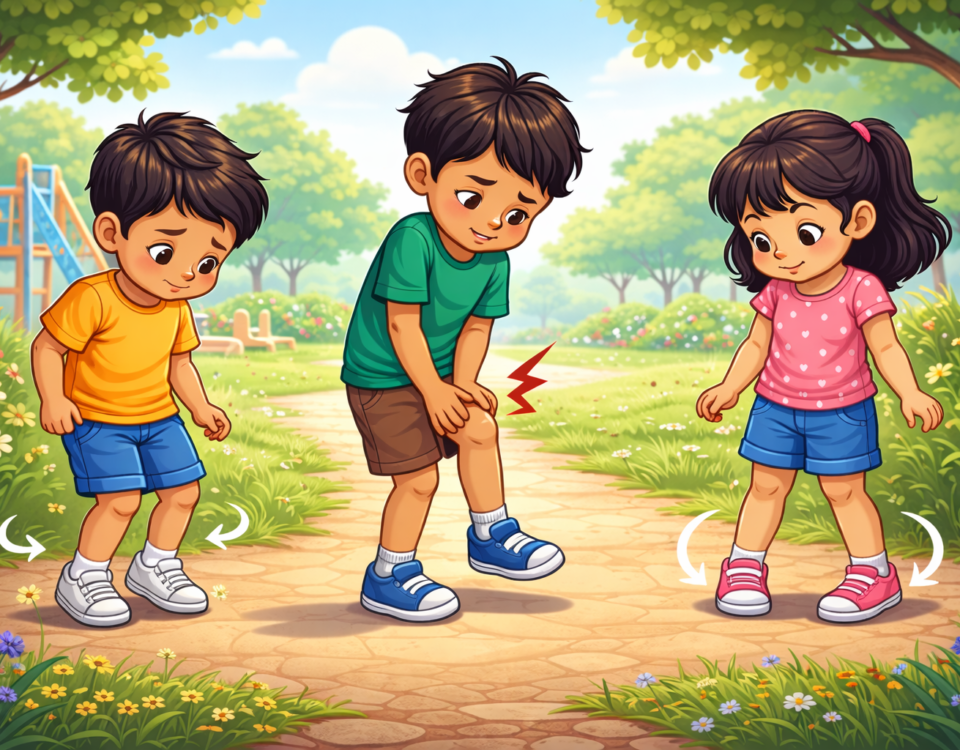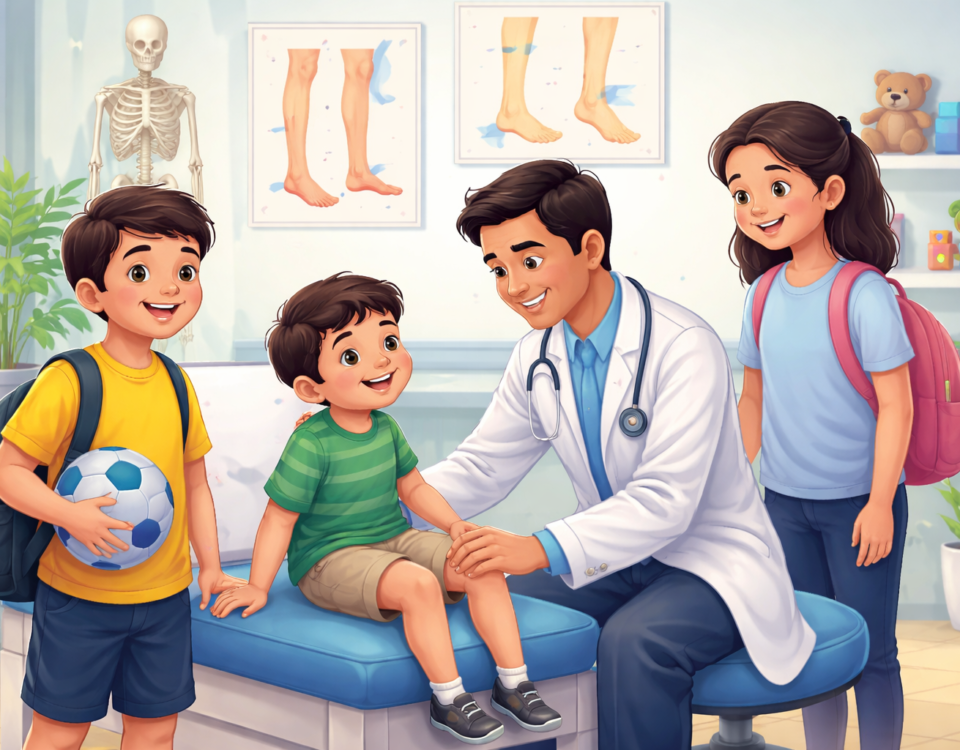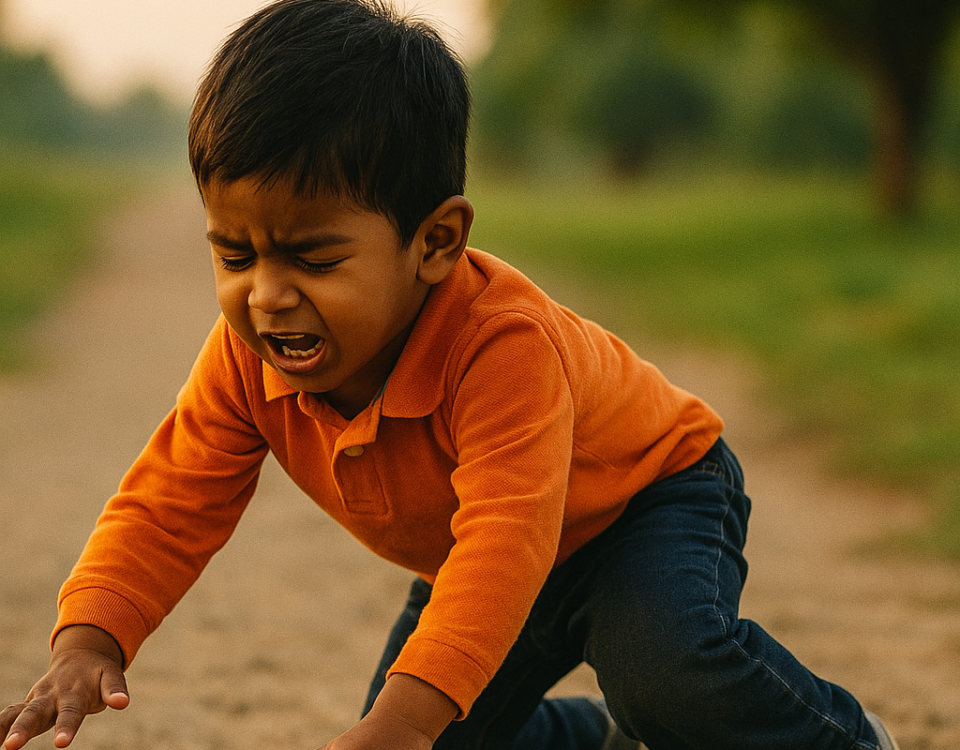When we think of arthritis, we usually associate it with older adults. But did you know that kids can get arthritis too? Yes, children as young as 6 months old can develop this painful joint condition. It’s called Juvenile Idiopathic Arthritis (JIA), and it affects thousands of children across the globe — including right here in India.
If you’re a parent concerned about your child’s joint pain, swelling, or stiffness, this blog will help you understand the signs, causes, treatment options, and when to see a pediatric orthopedic specialist.
What Is Juvenile Arthritis?
Juvenile arthritis (also called Juvenile Idiopathic Arthritis or JIA) is an umbrella term for autoimmune and inflammatory conditions that affect children under the age of 16. In simple terms, it occurs when a child’s immune system mistakenly attacks healthy joint tissues, causing pain, swelling, and stiffness.
Common Search Queries:
- Can children get arthritis?
- Symptoms of juvenile arthritis
- Is joint pain in kids normal?
- Best doctor for pediatric arthritis in Mumbai
- Treatment for arthritis in kids
How Does It Differ from Adult Arthritis?
While both adults and kids experience joint pain and inflammation, the key differences are:
- JIA can affect bone growth and development in children.
- Kids may outgrow it or go into remission with early treatment.
- Symptoms in children can be harder to identify since they may not express pain clearly.
Types of Juvenile Arthritis
There are several types of JIA, but the most common include:
1. Oligoarticular JIA
- Affects fewer than 5 joints (often knees, ankles, or wrists)
- Most common in girls under 6 years
- Risk of eye inflammation
2. Polyarticular JIA
- Affects 5 or more joints
- May resemble adult rheumatoid arthritis
- Common in both boys and girls
3. Systemic JIA
- Causes joint pain along with fever and rash
- May affect internal organs like heart and liver
5 Signs of Arthritis in Kids
Here are the early signs of arthritis in children. These may be mistaken for growing pains or injuries, so it’s important to observe consistently:

When Should You See a Doctor?
If your child complains of joint pain or swelling that:
- Lasts for more than 1 week
- Occurs without any injury
- Is accompanied by fever or rash
…it’s time to consult an orthopedic specialist or pediatric rheumatologist.
Early diagnosis leads to better management and prevents long-term complications like joint deformities or vision loss.
What Causes Juvenile Arthritis?
The exact cause isn’t fully understood. However, contributing factors may include:
- Genetics: A family history of autoimmune diseases
- Immune dysfunction: The body mistakenly attacks healthy tissue
- Environmental triggers: Viral or bacterial infections may trigger it in predisposed kids
Juvenile arthritis is not contagious and isn’t caused by diet, injuries, or overuse.
How is Juvenile Arthritis Diagnosed?
Diagnosis typically includes:
- Physical examination of joints
- Blood tests to check for inflammation (like ESR, CRP)
- ANA (Antinuclear Antibody) test for autoimmune activity
- X-rays or MRI to assess joint damage
Because JIA is a diagnosis of exclusion, your doctor will rule out infections, fractures, and other joint disorders before confirming.
Treatment Options for Kids with Arthritis
Good news — with the right care, children with arthritis can lead normal, active lives. Treatment is aimed at reducing pain, improving function, and preventing joint damage.
1. Medications
- NSAIDs (e.g. ibuprofen): Reduce pain and swelling
- DMARDs (e.g. methotrexate): Control disease progression
- Biologic agents: For severe or resistant cases
2. Physical Therapy
- Gentle joint exercises to maintain range of motion
- Strength training and stretching
- Customized physiotherapy plans for home
3. Lifestyle Modifications
- Healthy, balanced diet
- Adequate rest
- Regular non-strenuous physical activity like swimming or walking
4. Eye Checkups
- Regular screenings by an ophthalmologist if ANA-positive (to catch uveitis early)
Emotional Impact on Children
Living with arthritis can be emotionally challenging. Children might feel isolated, frustrated, or left out of physical activities. Parents should:
- Offer emotional support and reassurance
- Encourage involvement in age-appropriate activities
- Connect with pediatric support groups or counselors if needed
Why Choose Dr. Rajesh Panchal?
As a leading orthopedic surgeon for children and adults, Dr. Rajesh Panchal provides compassionate and evidence-based care for all types of arthritis — including Juvenile Idiopathic Arthritis. From early detection to tailored treatment plans, his multidisciplinary approach ensures your child receives the best possible care.
Final Thoughts
Yes, kids can get arthritis — and while it might sound scary at first, early diagnosis and treatment can make a world of difference. If you suspect your child is struggling with joint pain, don’t wait. Schedule an appointment and take the first step toward relief and recovery.






